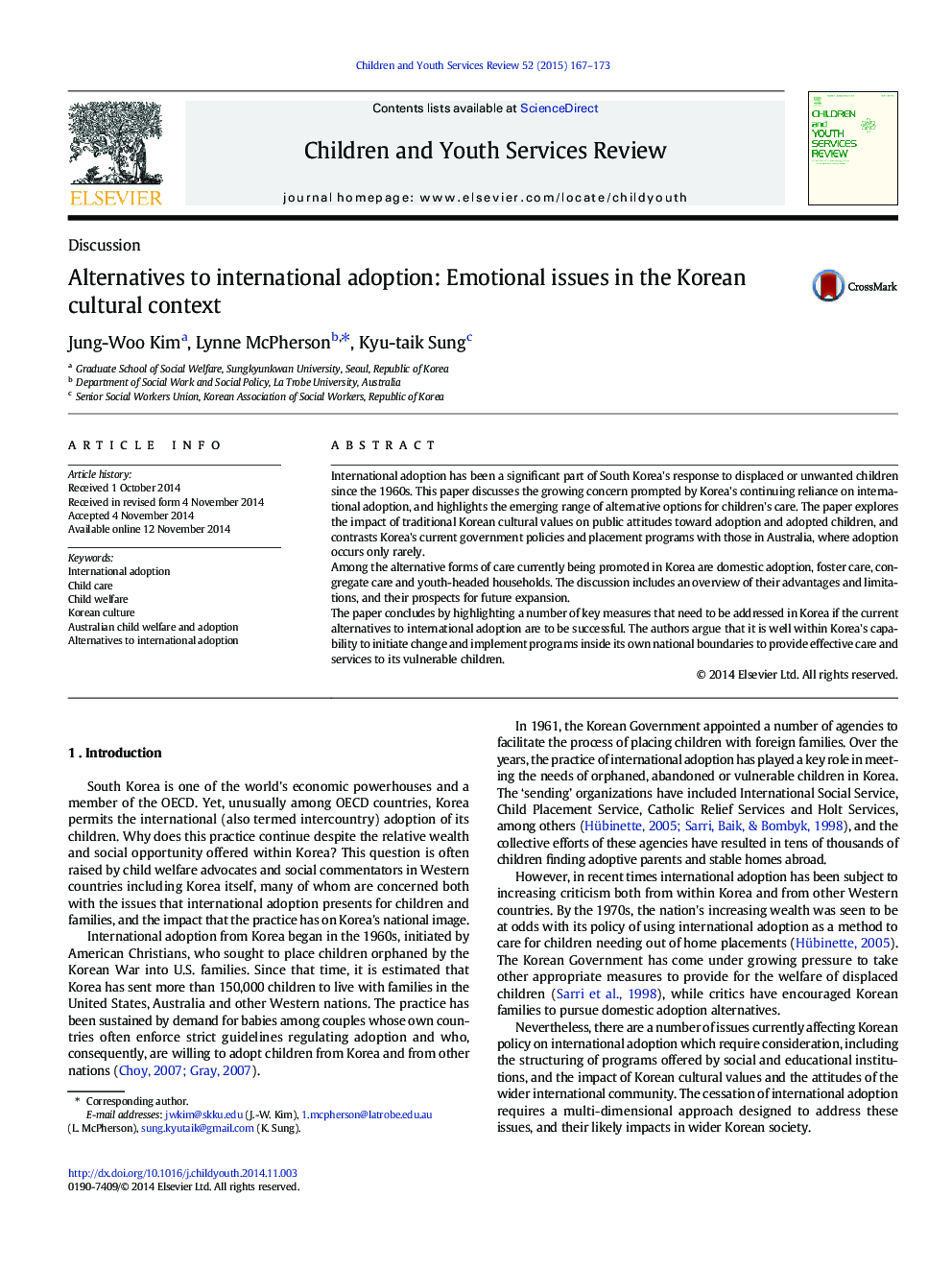| Article ID | Journal | Published Year | Pages | File Type |
|---|---|---|---|---|
| 346014 | Children and Youth Services Review | 2015 | 7 Pages |
•The growing concern about Korea's continuing reliance on international adoption is highlighted.•The paper explores the impact of traditional Korean cultural values on public attitudes toward adoption Korea's current government policies and placement programs are contrasted with those in Australia, where adoption occurs only rarely.•Measures are identified that need to be addressed in Korea in order for alternatives to international adoption to be successful.
International adoption has been a significant part of South Korea's response to displaced or unwanted children since the 1960s. This paper discusses the growing concern prompted by Korea's continuing reliance on international adoption, and highlights the emerging range of alternative options for children's care. The paper explores the impact of traditional Korean cultural values on public attitudes toward adoption and adopted children, and contrasts Korea's current government policies and placement programs with those in Australia, where adoption occurs only rarely.Among the alternative forms of care currently being promoted in Korea are domestic adoption, foster care, congregate care and youth-headed households. The discussion includes an overview of their advantages and limitations, and their prospects for future expansion.The paper concludes by highlighting a number of key measures that need to be addressed in Korea if the current alternatives to international adoption are to be successful. The authors argue that it is well within Korea's capability to initiate change and implement programs inside its own national boundaries to provide effective care and services to its vulnerable children.
